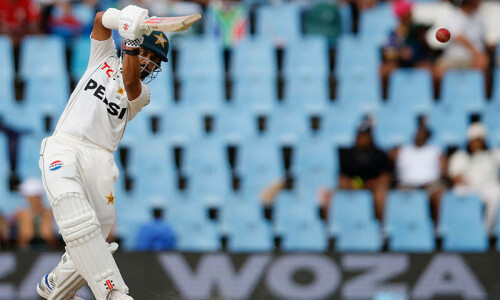Jun Do, the protagonist, is the son of the orphan master in a small town in North Korea. He grows up as one of the army’s lackeys trained for missions of kidnapping Japanese citizens. An early kidnapping goes wrong, and makes for a shuddering experience, even while reading.
But that does not form the centre of the novel. In fact, there is no centre to this novel. It seesaws on many different fulcrums, most of them being so arbitrary that it reads like an episodic narrative, a picaresque rather than a true novel. After being released from the kidnapping missions, Jun Do works as a telecom spy aboard a decrepit fishing vessel, the Jumna. Circumstances lead him to become a “hero” in North Korea, and to eventually visit a negotiation meeting with American diplomats. His taciturn yet commanding presence at the meeting makes the Americans believe he may in fact be a notorious officer of North Korea’s armed forces.
This belief leaks into his own side’s psyche also, and after the meeting he is arrested and imprisoned with other political dissidents whom Kim Jong Il (the quasi-fictional one), has marked for removal from society. Here he falls in love with the actress wife of the infamous General Ga, for whom he has been mistaken. They both plan to escape, and another set of adventures begins.
Being an orphan hardly plays into the narrative, and so could have been dispensed with, if Johnson did not already have a predilection for abandoned and lonesome characters. He uses the lack of attachments with Jun Do well, but Jun Do’s actions would have had so much more pathos had he been truly forced to abandon relationships rather than leave nothing behind.
Also, many critics have argued that the North Korea of this novel mirrors the actual North Korea, or a probable North Korea, just enough for this novel to be comparable to Orwell’s 1984. But where Orwell created a dystopia that was supposed to pervade the whole world, vilifying one nation does not quite accomplish the task — if that is what Johnson actually tried to do. A few critics have lauded the book’s brilliance of linguistic experimentation while still deriding the political message which panders to American sentiments, and reads like a Fox News caricature of North Korean puffery. And creating a propaganda piece about a country’s propaganda sort of belittles the tortures its citizens endure. Either that, or it becomes a satire about ‘the other’. And satire is most effective when it’s about one’s own surroundings. Nevertheless, some passages can by extension apply to the jingoism in the United States, or to that of any other country, as well. “Citizens,” is the word the presumably state-sanctioned passages begin with, and any of the names could be replaced to evoke the other “benevolent” leaders of other lands, who love the masses so very much. At nearly 600 pages, Johnson’s is a long book for these times of fleeting attention spans. It is two books in one, which is its major flaw. That may seem like a good deal for the bulk buyers, but literature is meant to be consumed piecemeal. This distended and overly thick book does not allow for one story to sink in and become whole, before it distorts the story again, and forces other narratives on it. The two separate books also pivot on different arcs, and the effect is dizzying.
However, the reading is aided by choice passages coming up every few pages. One of the early romantically charged paragraphs sets the tone for other romances: “The song was beautiful, her voice light now, singing of two lovers on a lake, and the song was not about the Dear Leader or defeating the imperialists or the pride of a North Korean factory. It was about a girl and a boy in a boat. The girl had a white choson-ot, the boy a soulful stare.” Passages of remarkable poetic virtuosity are sprinkled throughout.
Books such as the The Orphan Master’s Son often earn additional praise just for being ‘of the moment’. This novel about North Korea is timely and fresh, and helps to quench some of the curiosity the outside world has developed about this Asian nation that was considered (and perhaps still is) part of the ‘Axis of Evil’. However, media frenzy about the novel has perhaps aided the book in garnering recognition and awards more than a similar book about South Korea or even a fictional dystopia would. Therefore, readers should be cautioned to take the apparent truth in this novel about North Korea with their critical thinking caps firmly in place.
Johnson is one of the many American writers in contemporary times venturing beyond the North American continent to write about the outside world. These US authors are writing primarily for an American audience, and sometimes they pander to the lowest common denominator. However, Johnson has written a more intelligent and artful book, which is an encouraging sign, though something to be viewed with cautious optimism. Meanwhile, the urgency, creativity and the soothing invitation of his linguistic prowess leads to a partially worthy reading experience. Pick up The Orphan Master’s Son if you have time to invest in a long novel that demands patience, and sometimes also rewards it.
The reviewer teaches rhetoric at the Lahore University of Management Science
The Orphan Master’s Son (NOVEL) By Adam Johnson Random House, US ISBN 0812982622 480pp.
















































Dear visitor, the comments section is undergoing an overhaul and will return soon.